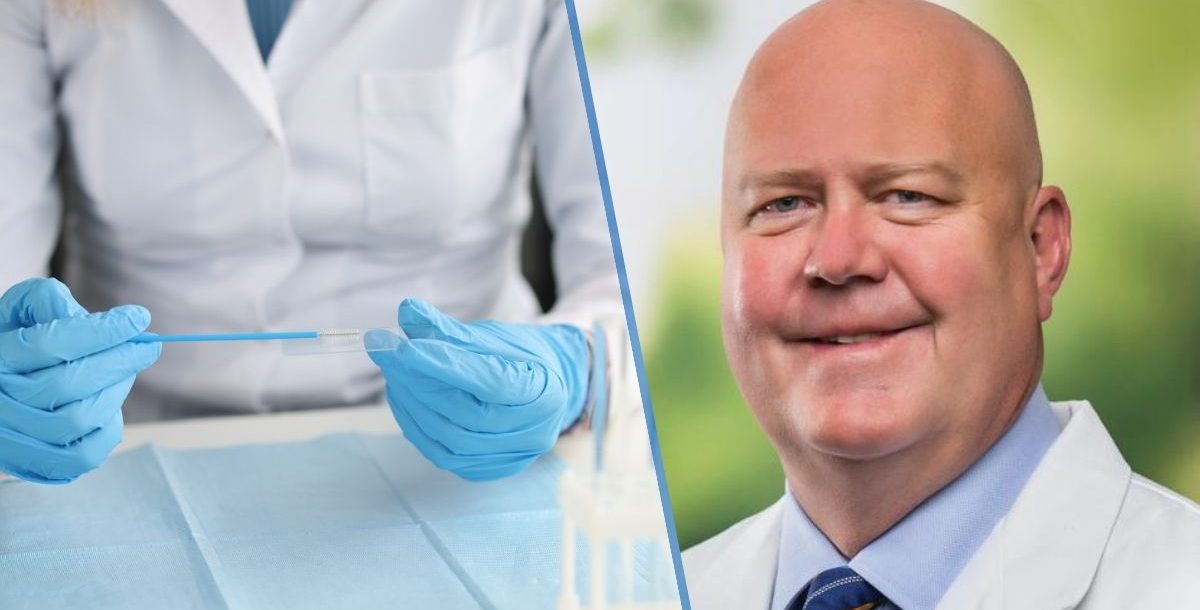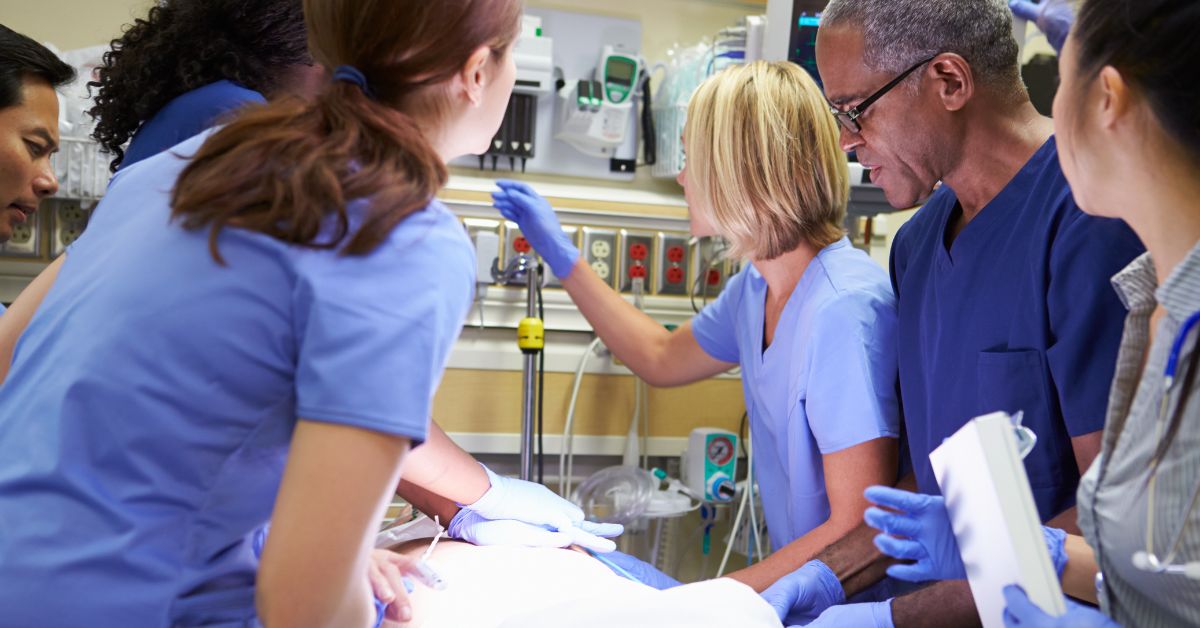Listen up, ladies! Getting your regular pap smears, also known as pap smear tests, is super important.
These exams are used to screen for cervical cancer and other abnormalities in the cervix which can help catch potential health issues early when they are most treatable.
But does a pap smear hurt?
During a pap smear, you will feel the health care provider use a small brush to collect cells from the cervix. Some say the test may be slightly uncomfortable. However, it should not be painful.
“On occasion a patient will experience some light bleeding afterwards, but they should not experience any cramping or pain after getting a pap smear,” Todd Lantz, MD, (pictured above, right) an OBGYN from Upstate OBGYN, shares.
At any time during your exam and you are experiencing any pain you should let your health care provider know. And if you are feeling a little anxious before your pap smear, try taking some deep breaths to help you relax.
What exactly is a pap smear?
A pap smear is a screening test that checks for abnormal cells in the cervix. Your health care provider inserts a speculum into your vagina to hold it open. From there, a small brush is inserted to collect cells from the cervix. The cells collected are then sent to a lab for analysis. Typically, you will receive the results of these test within a few days.
Who should get a pap test?
“For most women, they will receive their first pap smear at age 21 or earlier if they are sexually active,” Dr. Lantz shares. “Once women receive their first pap, they should continue getting routine pap smears every three years until age 65, unless their health care provider has other recommendations.”
Women that have certain risk factors, such as a weakened immune system or a history of abnormal tests, may have recommendations of getting screened more often.
Why are pap smears important?
The pap test is a valuable screening tool to detect cervical and vaginal abnormalities, such as infections, abnormal cells, inflammation, precancerous cells and cancer. Health care providers may opt to test for the human papillomavirus (HPV) during a pap smear exam as well. This is because HPV infection is the most significant risk factor for cervical cancer in women over 30.
When our patients receive their regular pap tests and HPV screenings, it gives our health care providers the ability to catch potential health problems early, and then we can work with the patient to develop effective treatment plans.
Can you get a pap smear on your period?
The answer is, yes, it’s still possible to get your pap smear exam despite being on your period. Normal vaginal bleeding should not get in the way of a pap smear or pelvic exam. However, if your flow is heavy during the day of your exam, you may want to wait. Call your clinical team if you have a pap scheduled and have unexpectedly started your period.
What do abnormal pap smear results mean?
When women hear that they have abnormal pap smear results, they need to know that does not necessarily mean that they have cervical cancer.
Most abnormal results are due to minor cell changes that often go away on their own. However, in some cases, abnormal results can indicate more serious issues. Your health care provider will follow up and discuss your results with you at which time they will recommend any necessary follow-up tests or treatments.
“In conclusion, it is very important to schedule regular pap tests with your health care providers,” Dr. Lantz shares. “And please don’t hesitate to bring a list of questions you may have or voice any concerns.”
So, does a pap smear hurt? And who should get one? Hopefully you now have all the answers you need to these questions and many more.
Learn more about the obstetrics and gynecology services we provide at Bon Secours.





